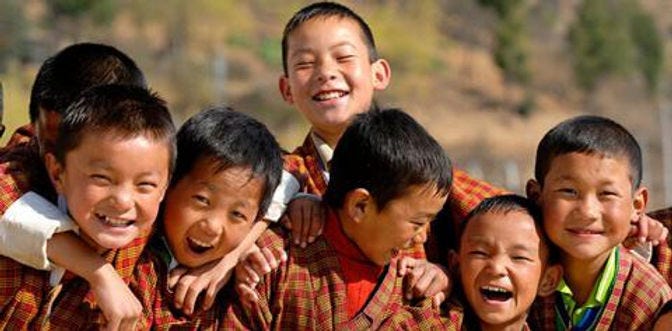The Human Development Index (HDI) of Bhutan
The Human Development Index (HDI) of Bhutan serves as a valuable metric for assessing the welfare of nations across the globe. In 2017, the United Nations Development Programme (UNDP) introduced the HDI to furnish an impartial gauge of the quality of life in various countries. This composite score took into consideration factors such as life expectancy at birth, educational attainment among children under the age of 15, per capita income, and access to clean drinking water and sanitation facilities.
In contrast to several other Asian countries, Bhutan achieved a commendable HDI score of 829 points in that year. This figure stood 117 points higher than the HDI scores of Nepal (627 points), Bangladesh (531 points), and Thailand (531 points). This discrepancy indicates that Bhutan enjoys a relatively elevated standard of living. However, it is essential to note that Bhutan's HDI score fell short of meeting the UNDP's criteria for gross national income (GNI) or GDP.
Gross national income or GDP represents the monetary gains generated by a nation's economy, based on the balance between the sales of goods or services and their production or the utilization of labor to make these goods and services available in the market. This distinction could elucidate why Bhutan's HDI score appears lower compared to other countries in the region, despite its relatively high level of well-being.
Bhutan occupies the 127th position on the Human Development Index.
In the latest United Nations Development Programme (UNDP) Human Development Index (HDI) report, Bhutan has been ranked 127th among 191 countries. The 2022 report, unveiled recently, indicates that Bhutan's ranking has improved by two positions compared to the previous year, when it was ranked 129th.
Bhutan is part of the group of countries that have shown progress, with consistent improvements in various human development indicators, including life expectancy, education, and gross national income. Among the South Asian Association for Regional Cooperation (SAARC) nations, Bhutan is positioned below Sri Lanka (ranked 73rd) and the Maldives (ranked 90th).
Bhutan falls within the medium human development category, sharing this classification with neighboring countries like India, Bangladesh, Nepal, and Pakistan.
Titled "Uncertain Times, Unsettled Lives: shaping our future in a transforming world," the report underscores the accumulation of layers of uncertainty in the global landscape.
Azusa Kubota, the UNDP Bhutan's resident representative, emphasized that this year's report advocates for investment, insurance, and innovation. She noted that the report comes at a time when the global community is facing a confluence of challenges, including the ongoing pandemic, a climate emergency, conflicts, rising inflation contributing to a global cost of living crisis, and growing strains on mental health.
Kubota pointed out, "The pandemic exposed existing tensions and weaknesses of our systems and institutions that continue to be tested time and again. The human development index has experienced an unprecedented reversal."
The report highlights that over 90 percent of countries registered a decline in their HDI score in either 2020 or 2021, and more than 40 percent experienced declines in both years, indicating that the crisis is deepening for many nations.
During the report's launch, Finance Minister Namgay Tshering emphasized the urgency of the challenges faced by Bhutan as a small, landlocked nation. These challenges include the economic and social impact of Covid-19, as well as increasing vulnerability to climate change and global warming.
UNDP's Regional Director for Asia and the Pacific, Kanni Wignaraja, stressed the importance of collaboration in addressing these challenges. She highlighted that by increasing investments in human development, protecting the environment, and equipping people with the necessary tools to thrive in an uncertain world, countries can create futures characterized by prosperity, opportunity, and hope. She emphasized that the path forward is determined by collective actions.
The report offers recommendations, including policies focused on investment in renewable energy, preparedness for pandemics, and insurance, along with social protection measures to enhance societal readiness for uncertain times.
Additionally, the report introduced "The Ten-Drel," an online platform designed to enhance citizen engagement in decision-making. This locally-developed initiative, a collaboration between the National Council of Bhutan and UNDP, will provide a space for robust public debate and discussion on critical national issues.






